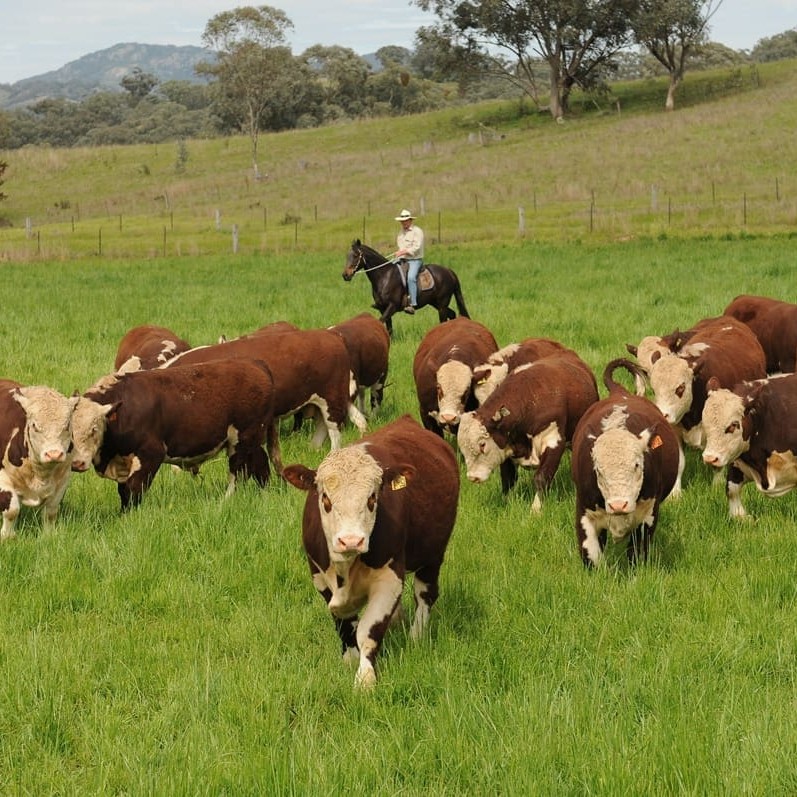 Rainfall registrations as high as 60mm in central NSW and similar falls across Queensland over last weekend has left many beef producers smiling.
Rainfall registrations as high as 60mm in central NSW and similar falls across Queensland over last weekend has left many beef producers smiling.
And for those who took the punt and planted winter oats crops four to six weeks ago on stored summer moisture, last week’s rain fell just in time, as crops were showing signs of badly needing a drink.
According to Paul Jameson, Elders, Dubbo, the central-western areas of New South Wales received rainfall anywhere from 25 to 60mm over the two-day downpour.
“The Dubbo district received the highest falls of 60mm, which is the heaviest rainfall recorded for the month of May since 1915,” he said.
“Already some producers had planted, while others revved their tractors into action preparing ground leading up to last weekend’s falls. There will be more tractors working before the next weather front moves through later this week, to ensure winter cereals are also planted in the window of opportunity.”
“As well, the rain has helped rejuvenate the pasture as the frosts so far this winter have not been that severe.”
Due to a great summer there had been a steady flow of cattle through the Dubbo saleyards, and as soon as the roads dried out, Mr Jameson expects to see some good cattle starting to flow through from far western areas of the State.
“As a result of the rain, we expect to see a kick in the store market in this region,” Mr Jameson said.
To the north of NSW on the Liverpool plains and surrounds, Patrick Purtle of Purtle Plevey Agencies, Manilla, said there had been reports of up to 60mm in the Barraba and Upper Horton districts, while Gunnedah recorded falls of 25mm to 40mm.
The further east the rain travelled, the lighter the recordings became. Tamworth, for example only received 25mm.
“The rain has had a significant effect on the early planted oats, which is now responding,” Mr Purtle said.
“However we have seen a reduction in cattle numbers for the coming sales as this rain has given feed and other opportunities for producers to hold cattle for later.”
In the Maranoa district of Queensland, Rod Turner, Landmark, Roma painted a similar picture, as the 40-50mm that fell across the region was giving the already-planted oats are ‘real kick along’.
“This in turn will also have a domino affect on the store market in coming weeks,” he said.
However yesterday’s Roma store sale showed little sign yet of a market rise, except that there was strong competition in the 330-400kg weightrange in both steers and heifers due to competition between restockers and feedlot buyers, as smaller numbers were yarded due to the weather.
In central western Queensland areas, the rain has played havoc with both the Longreach and Blackall sales, both cancelled this week.
According the Ann Russell of Grant Daniel and Long’s Blackall branch, there was 25mm recorded in the town, with much heavier falls to the east – the Jericho district received up to 75mm in parts – while the southern run of the district receiving better than 40mm.
In Longreach district there were falls of 40mm or better, spreading evenly throughout the district, while massive falls of up to 90mm fell to the southwest at Stonehenge and Windorah.
Grant Daniel and Long’s Longreach manager, Peter Cavanagh said with another wet front forecast to come through again this weekend, next week’s sale could also be in doubt.
He said while there were cattle bookings coming forward, the Longreach Associated Selling agents would make the decision over the coming weekend, depending on the rain forecast.
“However, good falls like we have just received will produce a good cover of winter herbage, and it still has been warm enough during the day for the Mitchell grass to respond,” Mr Cavanagh said.
The Central Highlands received falls of 40 to 50mm with the best recorded on the Springsure Tambo Road, at around 65mm.
Tim Maguire of Maguire’s Real Estate and Livestock said there would be a smaller yarding this week at tomorrow (Thursday’s) weekly sale with potential for the store market to lift.
“These rains were really beneficial to both the cropping and pasture producers,” he said.
“It gave all the crops a lift, and it is still warm enough for pasture to respond. The only flipside was it did interrupt some of the last of the cotton and mung beans to be harvested.”



HAVE YOUR SAY